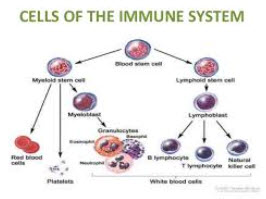What Causes PCOS?
There is disagreement and uncertainty as to what causes PCOS. Polycystic ovaries and polycystic ovary syndrome symptoms have been associated with various combinations of these factors:
Free PCOS Newsletter
- Genetic predisposition.
- Abnormal fetal programming.
- Insulin resistance or hyperinsulinism (high blood levels of insulin).
- Hyperandrogenism (excessive production of male hormones).
- Environmental chemical pollution (hormonal disrupters).
- Abnormality of the hypothalamic-pituitary-gonadal axis (organ/hormonal disorder).
- Gut dysbiosis.
- Obesity.
- Food adulteration (excitatory amino acids or endocrine disrupters, for example).
- Chronic inflammation.
- Leptin hormone resistance.
- Diet high in advanced glycation endproducts or refined carbohydrates.
Some of these causal factors may also be consequences of polycystic ovary disease. In other words, we have an amazingly complex network of interacting variables, each of which influences the other. This disorder is not a simple disease with a single cause.
Chapter 2 of the The Natural Diet Solution for PCOS and Infertility describes the possible causes of polycystic ovary syndrome in great detail.
New Cause of PCOS Discovered?

Some new research which reveals a possible cause of polycystic ovaries, lack of ovulation and polycysic ovarian syndrome. Although it's pretty technical, we thought it best to bring it to your attention because almost no one has been talking about it.
A study of female mice is suggesting that ovarian cysts may at least partially be the result of an immune system dysfunction. The gland involved is the thymus gland, which is responsible for the management of major aspects of your immune system. One of the functions of the thymus gland is to produce T-cells, which are white blood cells that help protect you from infection and also perform other important activities.
The researchers reported that ovarian cysts in the female mice did not develop unless there was an absence of regulatory T-cells.
Excessive estrogen appears to be the cause of the problem. When very young mice were given estrogen, they all developed polycystic ovaries. It is thought that estrogen alters the function of the thymus gland, thus preventing the full development of the regulatory T-cells.
The thymus gland in humans is also sensitive to sex steroid hormones such as estrogen.
The authors of the study concluded: "We propose that in utero exposure to excessive levels of steroids such as estrogen has a long-term effect on the ability of the thymus to produce regulatory T cells. In female offspring this can lead to PCOS."
In other words, it's possible your hormonal environment while you were in your mother's womb may have affected your thymus gland and contribute to the development of polycystic ovarian syndrome.
Polycystic ovaries and polycystic ovary syndrome are multi-faceted disorders, not just simply a little problem with your ovaries. In this research example, it appears a dysfunctional immune system could be involved.
This article is especially relevant if you plan to have a child. It's advisable to normalize your hormones as much as possible before conception and while pregnant. Consult with your doctor about this vital issue.
Source: Chapman JC et al, The estrogen-injected female mouse: new insight into the etiology of PCOS, Reprod Biol Endocrinol. 2009 May 18;7(1):47
Related Articles
- What Is Polycystic Ovary Syndrome?
- Is It Becoming an Epidemic?
- Symptoms You Need to Know About
- What Are the Causes?
- Treatment Information
- Your Family Is at Risk
- Young Girls at Risk
- How to Solve the Puzzle of this Disorder
- Is It More than One Disease?
- Confused? See this Plan to Get a Fresh Start
- New "Gold Standard" for Managing this Disorder
Get Answers to your Questions about
- Fertility
- Weight Control
- Hair Loss
- Stress
- Unwanted Hair
- Acne...and more!
FREE PCOS Report
and Newsletter

Your email is safe with us. We respect your privacy, and you may unsubscribe at any time.
Recent Articles
-
PCOS Long Journey to The Happy End
Apr 30, 18 07:24 PM
Hi Girls, Maybe my story will have one day a good end but I am not there yet. Until I was 31 years old I lived my dream, having lovely husband, good -
PCOS and Miscarriage
Apr 17, 18 04:03 PM
Proper diet and natural supplements can help the body maintain a pregnancy through successful delivery.
-
How to Deal with PCOS and Stress
Apr 04, 18 04:19 PM
Your body has a natural capacity to heal itself if you provide it with the necessary tools.





